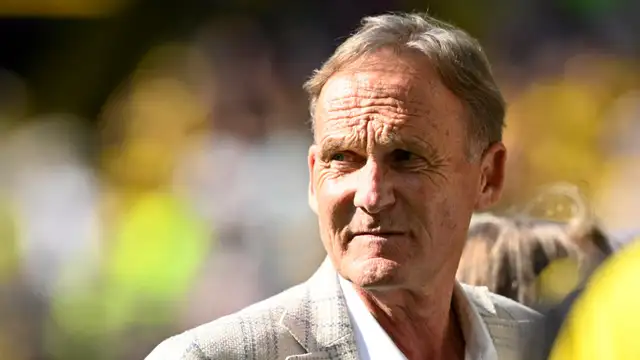In a blunt and sobering message to the global football community, Borussia Dortmund CEO Hans-Joachim Watzke has declared that salary caps may soon be “unavoidable” in order to prevent the sport from spiraling further out of financial control.
Speaking during a recent interview, Watzke emphasized that football’s financial ecosystem has become increasingly unstable, particularly as European clubs continue to struggle with ballooning wage bills and intensifying competition from Saudi Arabian clubs, who are luring top players with record-breaking contracts.
“Finances Will Get More Out of Hand”
“The truth is, we are heading toward a place where finances will get more out of hand if we do nothing,” Watzke stated. “The game is accepting Saudi Arabian money all too happily, but we must ask ourselves what kind of sustainability we want for football in the long run.”
His remarks come at a time when the Saudi Pro League has disrupted traditional football markets, offering contracts worth hundreds of millions to elite players, leaving European clubs scrambling to compete or risk losing stars. This spending spree, coupled with already inflated wages in Europe, has led to mounting calls for structural reforms.
The Debate Over Salary Caps
While many in football have long dismissed salary caps as impractical in a global sport, Watzke argues that the conversation can no longer be avoided. He believes a carefully structured system—potentially under the guidance of UEFA—could help level the playing field, protect smaller clubs, and reduce the growing financial inequality across leagues.
“It’s about ensuring the sport remains competitive and credible,” Watzke explained. “If clubs are forced to spend endlessly just to keep up, we risk alienating fans and damaging the integrity of football.”
Balancing Freedom and Fairness
Critics of salary caps argue that restrictions on player wages could face legal challenges under European labor laws and could drive talent to leagues without caps. However, proponents believe that the NFL and NBA models in the U.S. show how caps can promote parity and long-term financial health.
Watzke acknowledged the complexity but stressed urgency: “We cannot continue on this path without consequences. At some point, the system will collapse under its own weight.”
The Saudi Factor
Saudi Arabia’s growing role in football cannot be understated. From Cristiano Ronaldo’s blockbuster signing to high-profile moves of players like Karim Benzema and Neymar, the country has positioned itself as a powerful force in global football. With its vast financial resources, Saudi Arabia’s entry into the game has accelerated concerns that European clubs—already strained by post-pandemic debts—cannot realistically compete.
What’s Next for European Football?
UEFA has recently introduced new financial sustainability rules, but many experts believe they fall short of addressing the structural challenges Watzke has highlighted. Calls for stronger measures, including potential wage caps tied to revenue percentages, are gaining traction.
As the debate intensifies, Watzke’s warning underscores a growing consensus: football must adapt or risk losing its balance between competition, tradition, and financial sanity.


